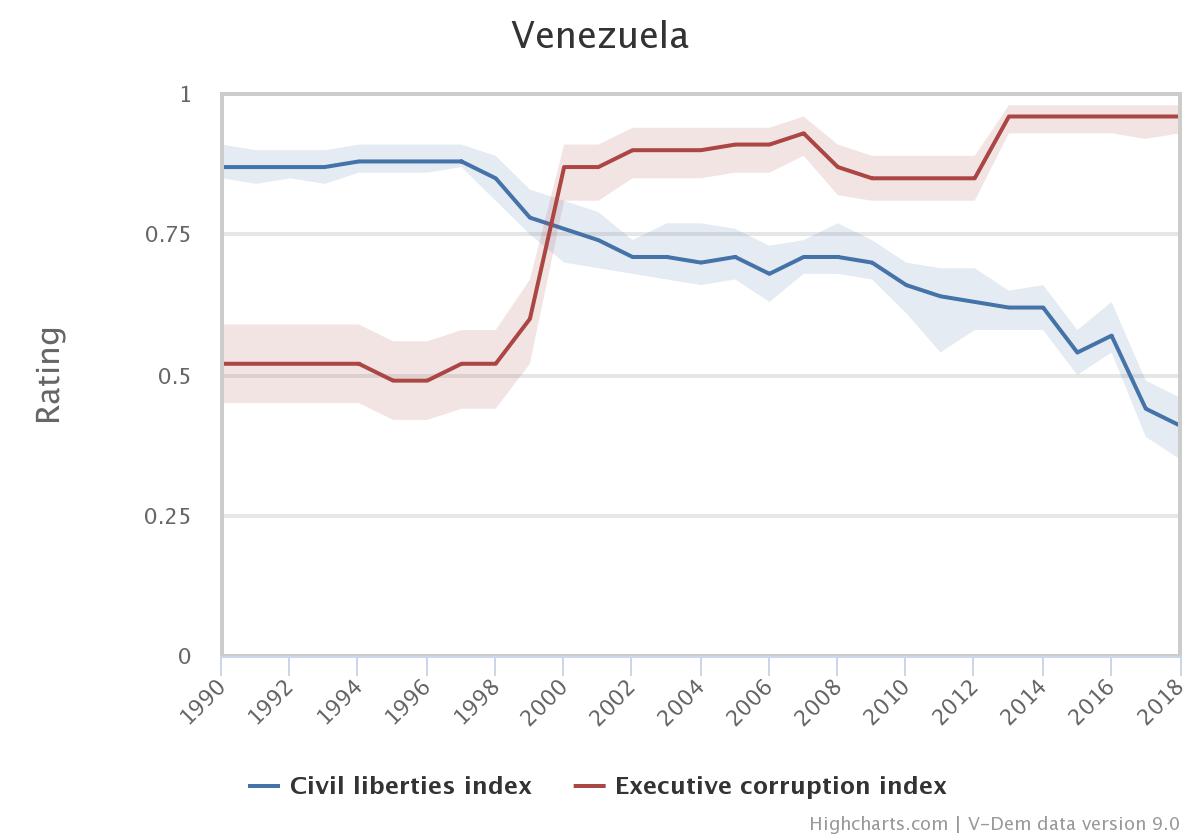Crisis in Venezuela
By: V-Dem Staff
Jun 03, 2019
Venezuela has been plagued by economic turmoil and mass emigration since the collapse of its democratic institutions. The deterioration of Venezuelan democracy began in 1999, when Hugo Chávez was elected as President. Under Chávez’s reign, political freedoms were curtailed and Venezuela underwent a failed socialist experiment which pushed the country into an economic crisis.
Nicolás Maduro succeeded Chávez in 2013. The problems in Venezuela have further deteriorated during his time as president. The political sphere has been characterized by greater governmental corruption, while civil liberties are heavily restricted. Citizens’ behavior is monitored through an ID system that allows the regime to oversee voting patterns and other activities. Widespread corruption at the executive level has allowed for a thriving black market between public officials and criminal networks. The smuggling and selling of cheap gasoline, which the military oversees, is an example of the vast corruption in Venezuela. In 2018 Maduro was re-elected in elections that were criticized by international observers as illegitimate. Opposition parties were banned from the election process and the election turnout was the lowest ever recorded in Venezuelan history.
V-Dem’s Country Graph tool, illustrates the changes in civil liberties and executive corruption since 1990 in Venezuela. Deterioration is evident in both indicators. The first indicator, the Civil Liberties Index, investigates the extent to which civil liberties are respected. It is measured from 0 to 1, with 0 indicating that the civil liberates are low and 1, civil liberties are high. The Executive Corruption Index, looks at how routinely members of the executive grant favors in exchange for bribes and how often they steal or embezzle public funds for personal use. It is measured from 0 to 1, with 0 indicating a low rate of executive corruption, and 1, a high rate of executive corruption.


